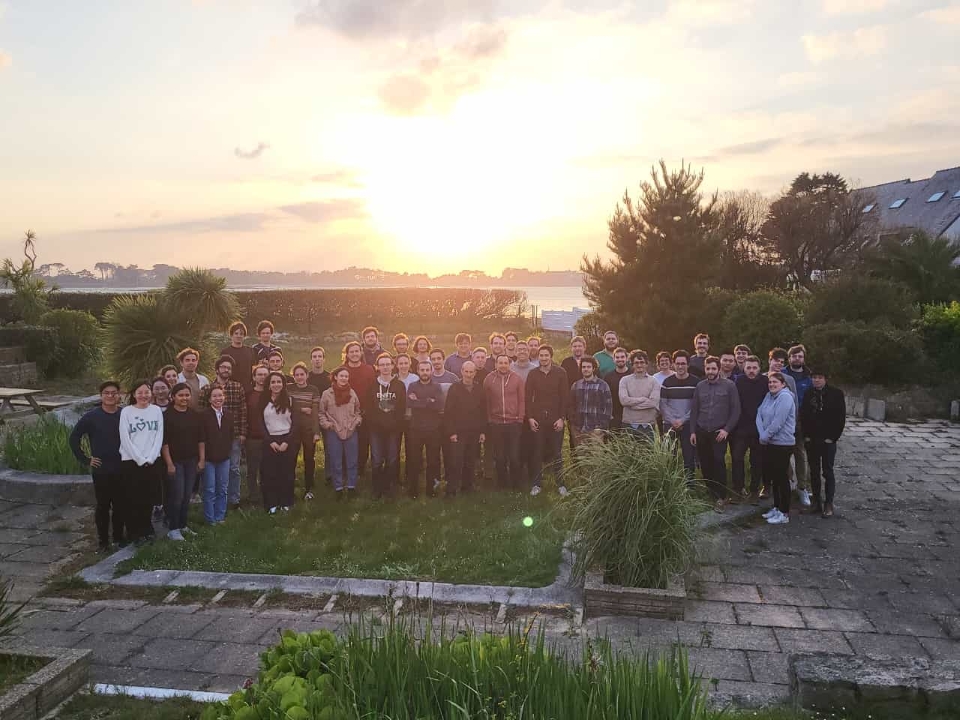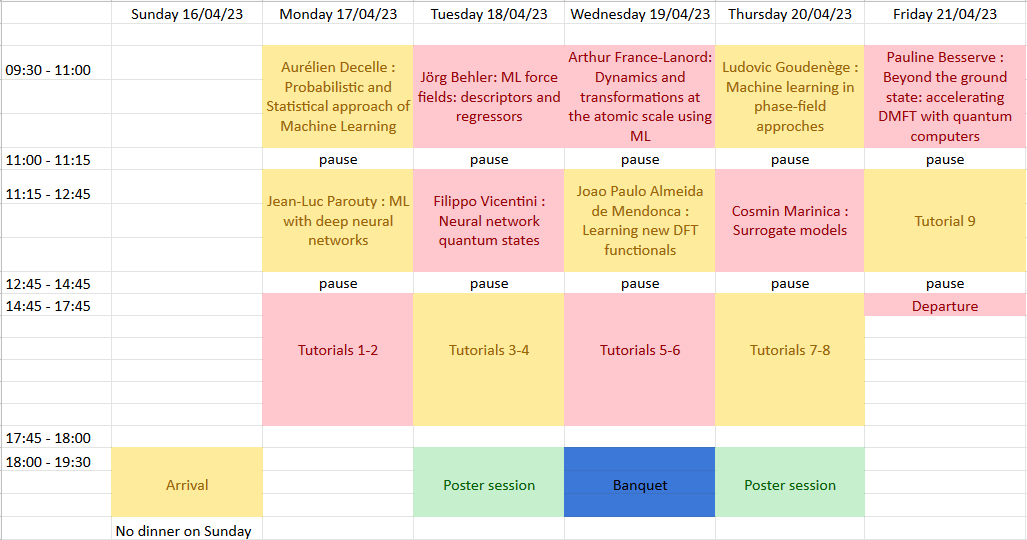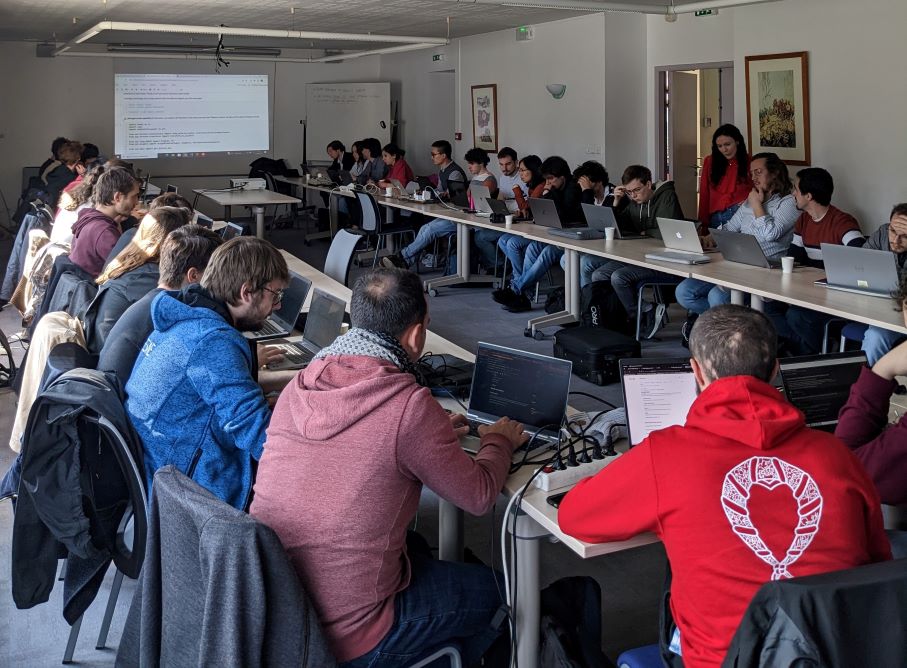
|
|
|
Actions précédentes du GDR > Ecole 2023 à Roscoff

Le GDR IAMAT a organisé une école de printemps à Roscoff, centrée sur l’usage de l’apprentissage automatique en sciences des matériaux. Le nombre de participants était limité à 45, de préférence non-permanents, et il y avait des sessions posters.
L’école s'est déroulée sur 5 jours, du lundi 17 avril matin 2023 au vendredi 21 avril midi. Les cours se déroulaient le matin et étaient suivis l’après-midi de travaux pratiques sur ordinateur, dans l’objectif de rendre les participants capables d’utiliser de manière pratique les approches de machine learning décrites le matin.
Deux fins d’après-midis ont été dédiées à des sessions posters, qui furent introduites par des presentations flash.

Orateurs:
- Aurélien Decelle – Statistical methods for machine learning
- Jean-Luc Parouty – Machine learning with deep neural networks
- Jörg Behler – Neural network potentials for atomistic simulations
- Filippo Vicentini – Neural networks quantum states
- Arthur France-Lanord – Dynamics and transformations at the atomic scale using ML
- Joao Paulo Almeida de Mendonca – Learning new DFT functionals
- Ludovic Goudenège – Machine learning in phase-field approaches
- Cosmin Marinica – Overview of surrogate machine learning models for materials science
- Pauline Besserve – Beyond the ground state: accelerating DMFT with quantum computers
Le coût de 480 euros incluait le logement (du dimanche 15 avril au soir jusqu’au vendredi matin) et les repas (du lundi matin au vendredi midi). La participation était gratuite pour les salariés du CNRS, et le coût était réduit pour les salariés du CEA.
Planing:

Practical session
-
General requirements: You should bring your own laptop with docker https://www.docker.com/ and anaconda with python 3 and jupyter notebook https://www.anaconda.com/products/distribution installed. If you are not comfortable with python and jupyter notebooks, we strongly recommend that you start practicing prior to the school.
Then for each tutorial we recommend preparing a dedicated environment, with the following requirements.
-
Tutorial 1 : numpy, matplotlib, scipy, h5py. The notebook can be found here: https://github.com/AurelienDecelle/RoscoffAI2023
-
Tutorial 2 : the fidle environment https://fidle.cnrs.fr/installation (we recommend installation via docker or pip)
-
Tutorials 3 and 5 : the docker image afldev/comp-iamat
-
Tutorial 4 : anaconda and jupyter notebook. The link to the tutorial is https://github.com/PhilipVinc/Lectures/tree/main/2304_Roscoff
-
Tutorial 6 : pyscf https://pyscf.org/install.html , tensorflow and ase. The link to the tutorial is https://github.com/jpalastus/Notebooks
-
Tutorial 7 : tutorials can be found at https://drive.google.com/drive/folders/1vGVxd07UwA9i8ZKG-hYIxJni8sB0L2Rh?usp=sharing
-
Tutorial 8 : we will provide a colab link at ai-atoms.github.io/milady
- Tutorial 9 : the link to the tutorial is https://github.com/pbesserve/Roscoff_Spring_School_tutorial
The slides of the lectures can be downloaded here:
Aurélien Decelle : Statistical methods for Machine Learning
Jean-Luc Parouty : ML with deep neural networks
Jörg Behler : Neural Network Potentials for Atomistic Simulations
Arthur France-Lanord : Dynamics and transformations at the atomic scale using machine learning
Ludovic Goudenège : Machine learning from scratch
Mihai-Cosmin Marinica : Surrogate models for atomistic materials science


